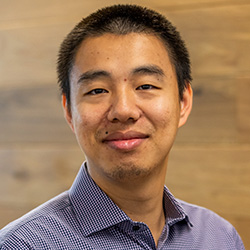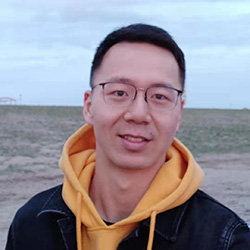Xiao Wang and Chenkai Weng Win Runner-up for Best Paper Award at the 2021 ACM-CCS Conference
The team was recognized for their recent paper on zero-knowledge protocol, an important component of modern cryptography.

Wang and Weng’s winning paper titled “QuickSilver: Efficient and Affordable Zero-Knowledge Proofs for Circuits and Polynomials over Any Field” is coauthored by Kang Yang, assistant professor at State Key Laboratory of Cryptology, and Pratik Sarkar, PhD student in computer science at Boston University.

An important component of modern cryptography, zero-knowledge protocol allows a party to verify a statement without revealing the underlying information that “proves” the data. The method is used in real-world applications such as blockchains and secure computations but is generally very energy- and resource-consuming due to either large computational, communication, or memory overhead.
“Our work is among the most efficient, scalable, and lightweight interactive zero-knowledge proof systems that can prove arbitrary circuits and many useful polynomial statements,” Weng said. “The QuickSilver protocol provides new perspectives and potentials for this technique to be deployed in practice to protect privacy and secure digital assets of internet users.”
The annual CCS event draws information security researchers, practitioners, developers, and users. Accepted submissions present new research related to practical aspects of computer security and privacy.
“ACM CCS is regarded as one of the top-four major conferences in the area of information security by both industrial and academic researchers,” Weng said. “It is an honor to have the chance to present our work and get recognition from leading experts."
Wang’s research in zero-knowledge is being supported by the DARPA SIEVE program to develop scalable zero-knowledge proofs. His group will continue to adapt the protocols with more complicated settings in order to confront sophisticated security threats.
